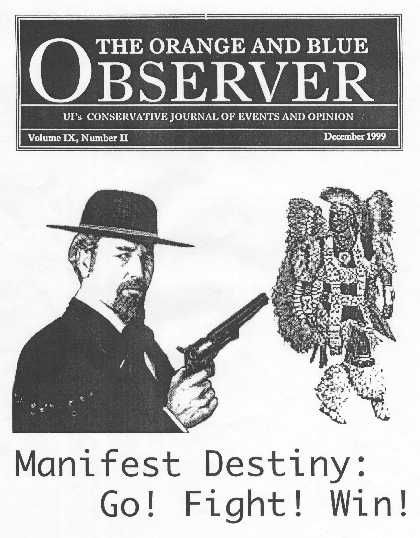VIEWPOINT: Nicknames promote racism, not dialogue
While most American Indians always have opposed the use of “Indian” logos, mascots and nicknames, most European Americans have eagerly supported them. Many European Americans rely on these man-made images to anchor them to the land and verify a false account of a shared history. These “Indians” exist only in the imagination, they provide a self-serving historical connection that leaves actual American Indians erased from the historical accounts of European Americans.
"Honoring" Indians means sharing their identities with us. It means their history and culture belong to everyone. Since we're all Americans now, the wishes of the majority become paramount. Unfortunately, our needs often must supersede theirs. Therefore, we can break treaties, despoil the land, and curtail un-Christian beliefs and practices whereever we deem it necessary. There's no more "theirs" and "ours" anymore; it's all ours.
This is nothing new. It began with the American colonists who emulated Indians (Boston Tea Party, Order of the Redmen) to proclaim their virtues and ties to the land. It's always been the case with people who dressed up as Indians (wannabes) and pursued "Indian" religions (New Agers). If we "own" whatever makes an Indian "Indian," we can use it to justify and excuse our behavior.
Mascots are another variation on this theme of appropriating and assimilating Indians for "their" (read: our) own good. The same goes for apologizing to Indians and honoring Indian soldiers (e.g., Woodrow Wilson Keeble) while slighting the thousands of Indians who suffer. The same goes for movies, comic books, and other commercial products that "honor" Indians of the past while ignoring Indians of the present. It's all part of an effort to limit and compartmentalize Indians--to keep them in the past and on the reservation where they belong.


No comments:
Post a Comment